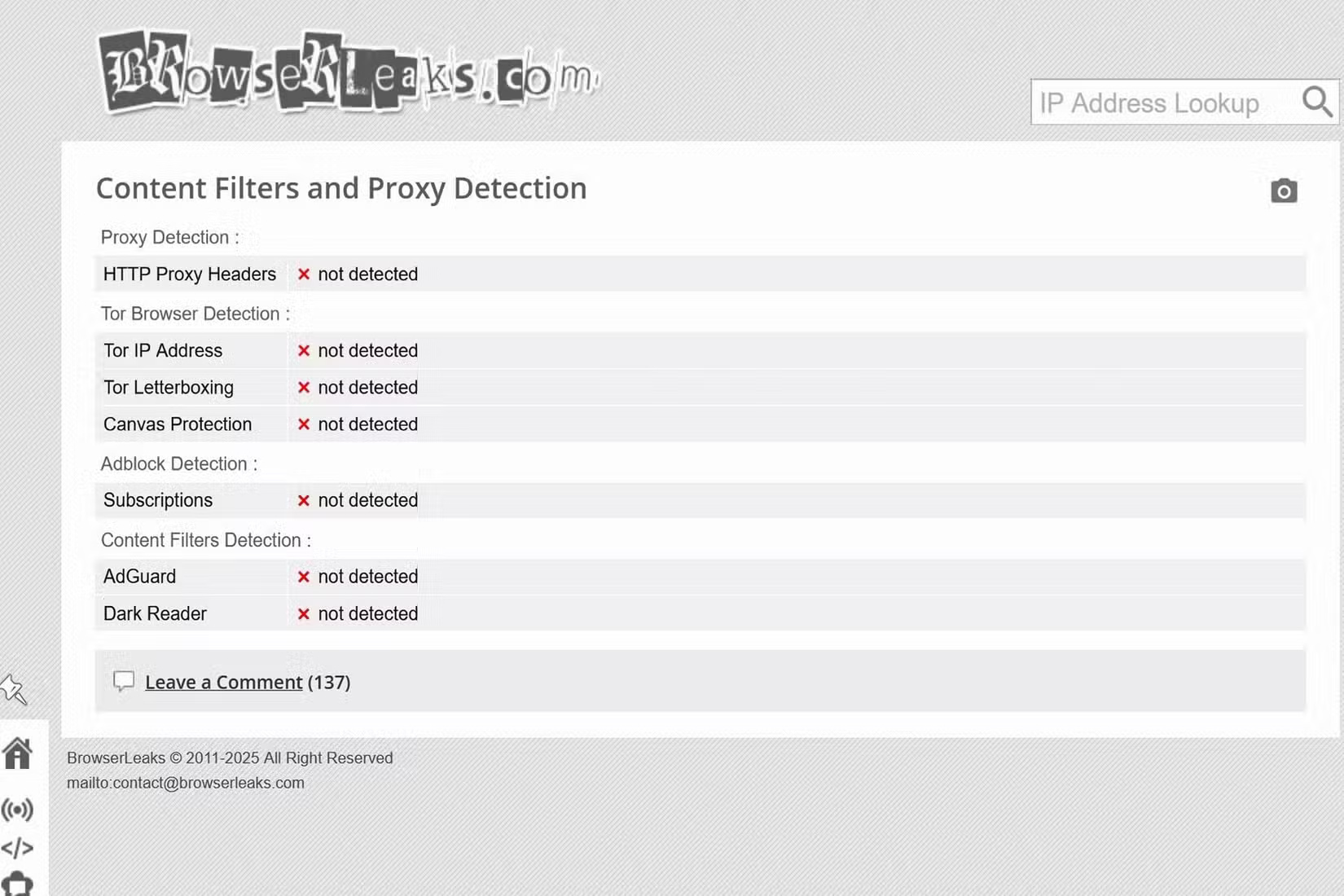Why do so many people stop using Firefox?
Many people use Firefox primarily because they believe it's the gold standard for privacy. That's not just an assumption—it's how the browser promotes itself. But after years of use, some people have abandoned the browser. It took some digging, but honestly, the cracks are starting to show.
3. Firefox's Enhanced Tracker Protection feature is not as expected
Once you connect to the Internet , websites use cookies , scripts, and pixels to track you. With these elements, websites and advertisers can track your activities across the Internet. What makes this scary for anyone concerned about privacy is the amount of information that is collected without your consent. Your location, browsing habits, and other personal characteristics become someone else's game.
Note : Your browser can be an effective defense against this type of intrusive tracking. This is exactly what users expect from Firefox's Enhanced Tracker Protection feature, but its effectiveness is limited.
The author ran the Browser Leaks Content Filters test on Firefox. This test shows whether privacy-enhancing tools change the browsing experience on a given browser. On Firefox, there is a distinct lack of privacy-enhancing tools: No Tor mailbox, no canvas protection, no ad-blocking subscription.

Next, the author ran the Cover Your Tracks fingerprinting test . This test from the Electronic Frontier Foundation (EFF) tells you whether your browser is actively preventing fingerprinting on websites. Here, the author got a single fingerprint, proving that Firefox does not protect users from being fingerprinted on the Internet.

Note : Random fingerprinting is ideal for privacy. It implies that you don't stand out and are indistinguishable from others using the same browser.
Firefox offers very poor privacy by default. For a security browser, it doesn't meet the minimum requirements. There may be many reasons to use Firefox, but privacy isn't one of them, and that's what matters most to many people.
2. Updated Terms of Use is the Last straw
If the lack of basic privacy improvements wasn't enough to put you off, Mozilla's updated privacy announcement is the last straw.
Regarding the user data collected, part of the terms of use reads as follows:
.you grant us a non-exclusive, royalty-free, worldwide license to use that information to help you navigate, experience, and interact with online content as you have indicated when using Firefox.
For a company that claims not to be a big tech company, this update seems very much like what you would expect from a big tech company. Of course, there was a lot of backlash. So much so that they quickly updated and removed the terms of service quoted above.
Too little, too late. Firefox is a free and open source browser, but this level of control over your data is too high a price to pay. No one wants to give Mozilla a non-exclusive, royalty-free, worldwide license to use their information.
1. Firefox warning signs are always present
When the cracks start to appear, you realize there's a lot of things you've overlooked. The wording in the terms of use makes it clear that there's a lot of things you've overlooked. They become more obvious and serve as a reminder that Firefox is not a trustworthy, secure browser.
The Pocket integration (now discontinued) was one example. It included recommendation tracking, involved third parties, and connected to external servers without consent. This should have been a warning sign for anyone who values privacy over convenience.
Another thing to worry about is Firefox's search deal with Google , Mozilla's biggest source of revenue. Google is one of the biggest data collectors — these kinds of partnerships are a conflict of interest.
For many, Firefox now feels like a regular browser, not a browser built for privacy. It boasts some great convenience features that rival Chrome or Edge. But that's where it really belongs: in the realm of convenient, polished browsers with limited privacy options.
So yes, a lot of people have stopped using Firefox, but should you? Absolutely not. It still works, but if you really want privacy, try Mullvad or Librewolf. These are options that have privacy-friendly defaults.